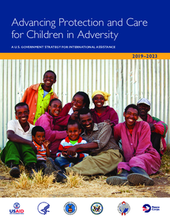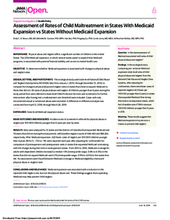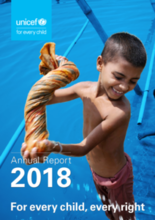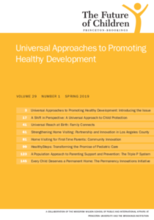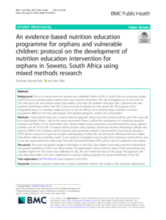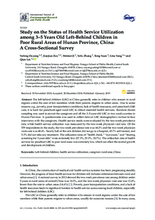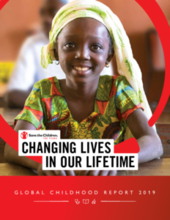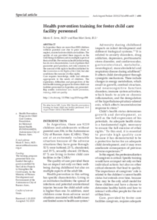Displaying 71 - 80 of 243
The goal of the Strategy is to ensure the U.S. Government’s investments for the most-vulnerable children and families around the world are comprehensive, coordinated, and effective in helping place partner countries on a Journey to Self-Reliance by which they can sustainably finance, manage, and deliver services that lead to stable, resilient, and prosperous families and communities.
The purpose of this study was to determine whether Medicaid expansion is associated with changes in physical abuse and neglect rates of children in the US.
In words, images, facts and figures, this report details the results that UNICEF achieved in 2018, together with its generous partners and supporters, a dedicated global workforce and children and young people themselves.
This volume explores universal social programs designed to serve entire communities as they move toward achieving population impact in reducing child maltreatment, strengthening parental capacity, and improving infant health and development.
This study focused on health promotion for children and young adults who live in residential care institutions in Portugal.
The purpose of this longitudinal study from BMC Public Health is to develop, implement and to test the efficacy of an evidence-based nutrition education programme (NEP) for orphans and vulnerable children (OVC) in South Africa that will integrate their families/caregivers, schools and communities.
The goals of this study were 1) to examine this relation in youth placed in foster care with high levels of maltreatment exposure, and 2) to investigate the relation between maltreatment frequency and acute pain, and maltreatment frequency and general chronic health condition.
This study evaluated the health service needs of left-behind children ages 3-5 years old in Hunan Province, China.
In commemoration of its founding 100 years ago, Save the Children is releasing its third annual Global Childhood Report to celebrate progress for children.
In this article, the experience, difficulties and perspectives of the first health training program for foster child care facilities personnel in Argentina are presented.

